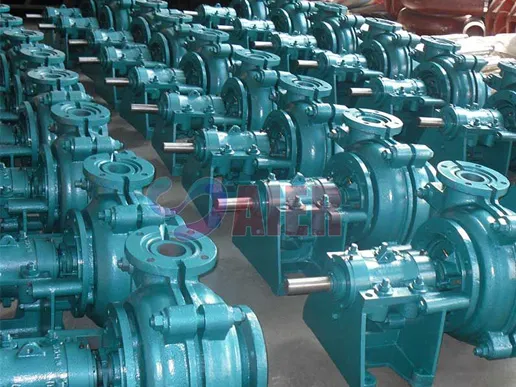Nov . 05, 2024 08:17 Back to list
submersible pump for slurry supplier
Submersible Pump for Slurry The Essential Guide for Suppliers
Submersible pumps for slurry are vital components in various industries, including mining, construction, and wastewater management. These specialized pumps are designed to operate beneath the surface of the slurry, efficiently transporting materials that often contain solids, abrasives, and other challenging elements. In this article, we will explore the characteristics, applications, and advantages of submersible slurry pumps, along with tips for suppliers to effectively market their products.
Understanding Submersible Slurry Pumps
Submersible pumps are engineered to handle a wide range of challenging materials. Unlike standard pumps that are installed above the ground and require a pipe system to draw fluids up, submersible pumps function underwater, reducing the risk of cavitation and improving overall efficiency. These pumps are typically designed with a hermetically sealed motor that prevents water from entering and damaging the electrical components.
One of the defining characteristics of slurries is their viscosity, combined with solid particles of varying sizes. As a result, submersible slurry pumps must be robustly constructed to handle the abrasive nature of these materials. Manufacturers typically use high-quality materials, such as stainless steel or cast iron, to enhance durability and extend the pump’s lifespan. Additionally, these pumps often feature reinforced impellers and volutes designed to minimize wear caused by solid particles.
Applications of Submersible Slurry Pumps
The versatility of submersible slurry pumps makes them suitable for a variety of applications
1. Mining Industry Submersible pumps are essential for handling slurry during ore processing and transferring waste materials to tailings storage. They are also used to dewater mining pits and manage groundwater. 2. Construction During construction projects, these pumps are crucial for dewatering excavation sites, handling concrete slurry, and transporting aggregate materials.
3. Wastewater Treatment In municipal and industrial wastewater treatment facilities, submersible slurry pumps help manage sludge and prevent clogging in treatment systems.
4. Agricultural Applications Farmers utilize these pumps for slurry management, especially in handling manure and other organic mixtures, ensuring efficient water removal and nutrient distribution.
Advantages of Submersible Slurry Pumps
submersible pump for slurry supplier

For suppliers, the benefits of submersible slurry pumps are manifold. First and foremost, their efficiency translates to significant cost savings for clients. By operating submerged, these pumps can achieve higher hydraulic heads and flow rates compared to surface pumps, making them ideal for deep applications.
Moreover, submersible slurry pumps reduce the need for extensive piping systems, decreasing installation and maintenance costs. Their ability to handle solid-containing liquids without clogging or losing performance adds to their appeal. Lastly, many modern pumps come equipped with advanced technologies such as variable frequency drives (VFD), allowing for real-time performance monitoring and customization based on specific operational needs.
Tips for Suppliers
To effectively market submersible slurry pumps, suppliers should focus on the following strategies
1. Educate Customers Provide comprehensive information about the advantages and applications of submersible slurry pumps. Hosting webinars or workshops can enhance client knowledge and position suppliers as industry experts.
2. Quality Assurance Ensure the products meet or exceed industry standards. Suppliers should invest in certifications and rigorous testing to showcase the reliability of their pumps.
3. Expand Product Range Consider offering a variety of pump sizes, materials, and configurations. Tailored solutions can meet the specific needs of diverse industrial applications.
4. Leverage Technology Incorporate smart technologies in pump designs, such as IoT capabilities for remote monitoring. This can attract tech-savvy clients looking for innovative solutions.
5. Build Relationships Networking with industry professionals and attending trade shows can help establish trust and visibility in the market. Strong relationships can lead to repeat business and referrals.
Conclusion
In conclusion, submersible pumps for slurry are essential tools in various industries. As a supplier, understanding the unique characteristics and advantages of these pumps can help effectively market them, while building strong customer relationships and offering quality products will ensure success in this competitive landscape. By focusing on education, innovation, and customer service, suppliers can enhance their offerings and secure a solid foothold in the market for submersible slurry pumps.
-
High Quality Slurry Pump Seals Reliable China Suppliers & Manufacturers
NewsJun.24,2025
-
High Quality Portable Submersible Slurry Pump Supplier & Manufacturer from China
NewsJun.10,2025
-
Slurry Pump Parts Manufacturer – High Quality Rubber Spare Parts from China
NewsJun.10,2025
-
High Quality 1/3 HP Submersible Sump Pump with Vertical - Reliable Supplier & Factory Price
NewsJun.10,2025
-
High-Efficiency Centrifugal Slurry Pumps India
NewsJun.10,2025
-
High Quality Warman Centrifugal Slurry Pump Suppliers & Factory
NewsJun.10,2025
